Understanding the Benefits of Forest & Outdoor Preschool
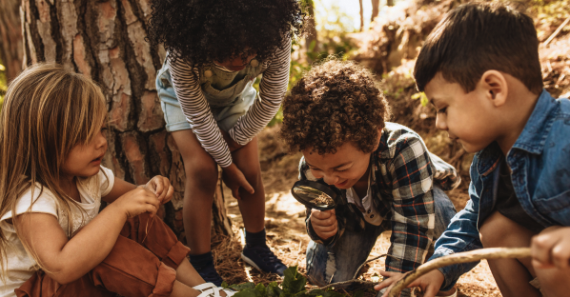
Published Date: 03/06/23
If you only have a minute
A forest school is a nature-based learning program that takes place in a park, forest, or other outdoor environment.
There are many pros to outdoor early childhood education, including improved health.
In this article
What is a forest school?
What are the benefits of forest schools?
What are the cons of a forest school?
How are forest school activities different from traditional school?
FAQs about nature-based programs
What is a forest school?
In recent years, forest schools have become increasingly popular, especially for preschool children. But what exactly is a forest school and why should you consider it for your child?
A forest school is a nature-based school where learning takes place entirely, or almost entirely, in the great outdoors in a woodland or natural environment. Forest school activities are quite similar to activities you'll find in a traditional preschool, but children get the added benefit of spending the day in nature.
With a focus on using the natural world as the classroom, outdoor school offers many benefits, which we'll explore.

What are the benefits of a forest school?
There are many advantages to outdoor preschool and they're backed by research!
Improved communication, concentration, motivation, and social development
A forest school study in the United Kingdom found positive impacts in all of these areas.
Being physically active outside allows students to develop self-awareness and self-regulation while increasing curiosity and imagination.

preschool forest school activities offer learning in A natural environment
Improved gross and fine motor skills
Nearly all the activities in a forest school help children improve balance, coordination, and agility.
Logs make for unsteady balance beams, boulders provide uneven footing for climbing, and obstacles on the ground in the woods, like streams and fallen trees, provide opportunities to work gross motor skills.
Fine motor skills improve as well, as kids collect rocks, leaves, and stones, build towers, grip branches, and use sticks to draw in the dirt or practice math skills.

More resilience, better health, enhanced social and cognitive competence
A long-term forest school study found that kids who attended forest school were more resilient and better at problem-solving than their traditionally schooled counterparts.
YOU'LL ALSO ENJOY: HOW TO RAISE RESILIENT CHILDREN

Improved health
One of the best benefits of forest school is improved health for children.
When children play outdoors in the fresh air, they inhale phytoncides from plants. These phytoncides have anti-bacterial and anti-fungal properties that boost the immune system.
Of course, outdoor play provides far less exposure to germs than being inside at traditional school. That means toddlers get sick less often
Being outside in the sunlight also provides vitamin D, which is crucial to healthy bone development, improves mood, and contributes to better sleep.
Another fantastic perk of forest school is that spending time outside decreases the risk of allergies and asthma and while researchers haven't pinpointed why, it can also help prevent or delay nearsightedness!

Lower rates of childhood obesity
With children getting more and more screen time, obesity rates are on the rise. But, forest school activities provide endless opportunities for movement, much more so than traditional preschool. And, research shows that kids who get more outdoor play are at lower risk for being overweight and obese.

Milder ADHD symptoms
ADHD
One study of over 400 children with ADHD found that kids who regularly play outside, like at a nature-based school, have milder symptoms than kids who played primarily indoors.
Respect for nature
When children play outdoors, they interact with their surroundings in a meaningful way. Kids develop a deep appreciation for nature and learn to respect its power and beauty.
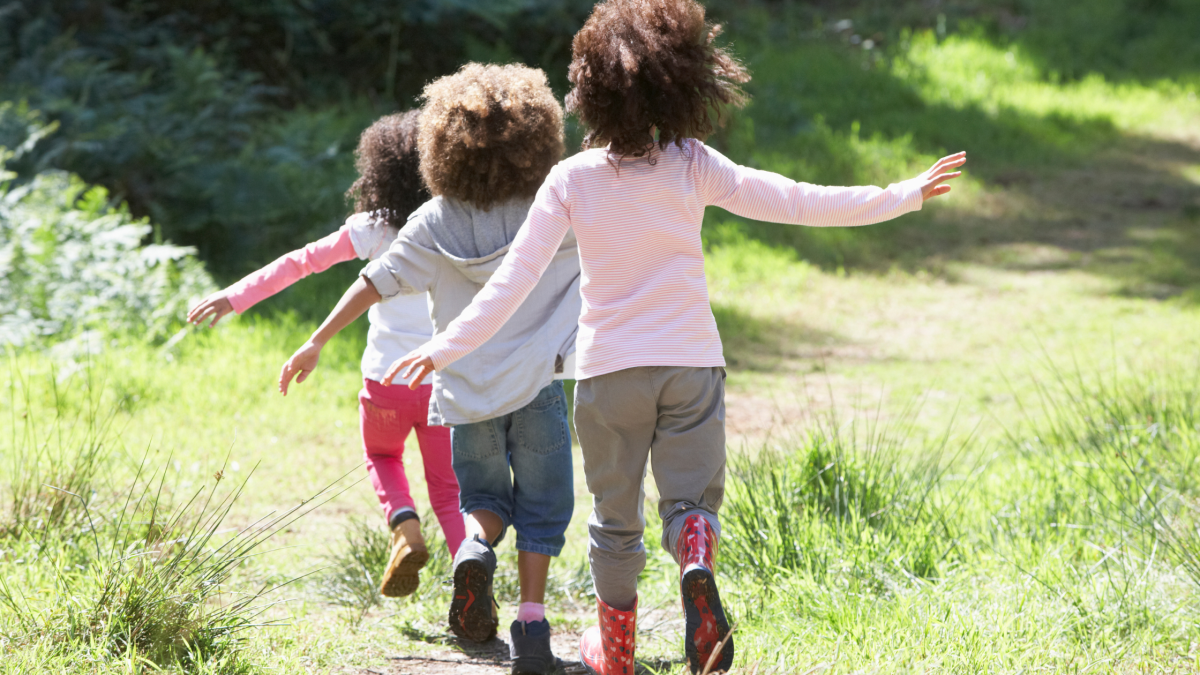
Children develop confidence
Forest school activities provide ample opportunities for risky play. Risky play is essential to a child's development, as they are learning how to navigate the world safely. It provides proprioceptive and vestibular input to their bodies, develops motor skills, helps work executive function, and kids build self esteem as they conquer challenges.

What are the cons of forest school?
Generally, the pros of forest schools outweigh the cons, but there are some considerations parents should take into account when creating their list of schools to check out.
Lack of regulation
Currently, Washington is the only state to license outdoor preschools. This means there's little oversight and regulation of programs and you're unable to check license status.

While we generally don’t recommend relying on childcare reviews, you may have little else to go on. Do your homework by asking the right questions and speaking with currently enrolled families.
Difficult transition to regular school
When entering kindergarten, a child may struggle with a highly structured environment after experiencing forest school activities such as climbing trees and mark making with natural elements. This can create challenging behaviors and a dislike of traditional school.
Increased chance of injury
There is a potential for injury any time a child is engaged in physical play and risks are slightly higher in a forest school than traditional school.
Rather than highly regulated playground equipment, students are using their natural surroundings and that means they may get hurt.
That said, forest school is not unsafe and while kids are encouraged to explore, they're also supervised closely by teachers.

It's messy
A child might not mind, but the mess may be a drawback parents. Playing outside no matter what the weather is means lots of dirt and lots of laundry among other things.

They often lack diversity
Because forest schools can be expensive and not offer care aligned with working hours, they often lack ethnic, cultural, and socioeconomic diversity. One survey found that just 7% of kids attending outdoor preschool are Hispanic or Latino, and just 3% are Black or African American.

How are forest school activities different from traditional school?
For the most part, forest school activities are very much like the activities at any other school, they just happen outside in nature.
Toddlers are learning early academics, like math, literacy, and science. They build social emotional skills as they make friends, engage in free play, and receive a well rounded education.
But, teaching these concepts in nature means that the materials and objects used may differ from those in a traditional program.
Math may be taught by finding patterns on a leaf or counting pine cones, kids create art with objects found in nature, sticks may be used to practice writing, trees become science lessons...the ideas are endless when you have the forest at your disposal.
Importantly, forest schools are hands-on a play-based, which is essential for the youngest learners but really, fantastic at any age.
Related read: 30 Play-Based Ways to Teach Math to Preschoolers
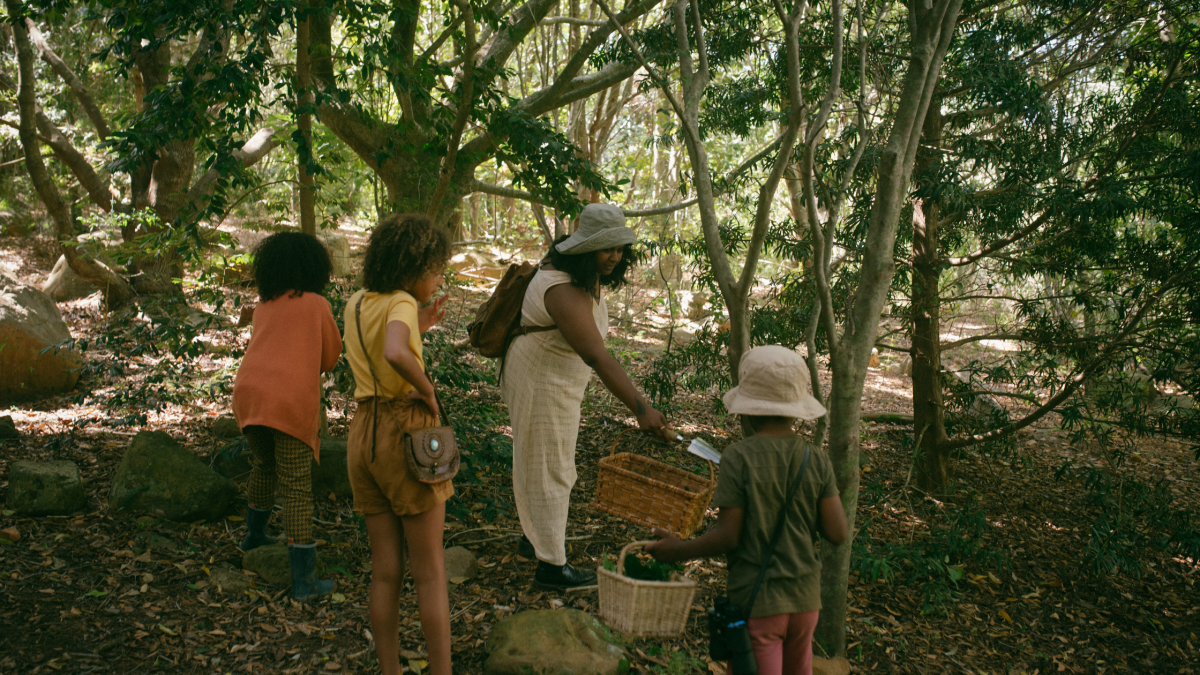
Fun, nature-based activities you can do at home with toddlers
Try these ideas to incorporate

Here are some fun activity ideas to try at home:
Make ink from flower petals
Collect flowers with colorful petals - the richer the color, the better. Mash the petals in a jar and fill with just enough boiling water to cover the petals. Wait 24 hours and strain. You now have colored ink for an art project.

Den building in the woods
Head to the woodland to help toddlers make a cozy teepee-style den.
Search for a tree that has a fork in the branches, low to the ground.
Find several long, straight sticks and prop them against the tree's fork to build a solid frame.
Use pliable twigs to weave between the frame.
Cover with leaves and other natural materials!
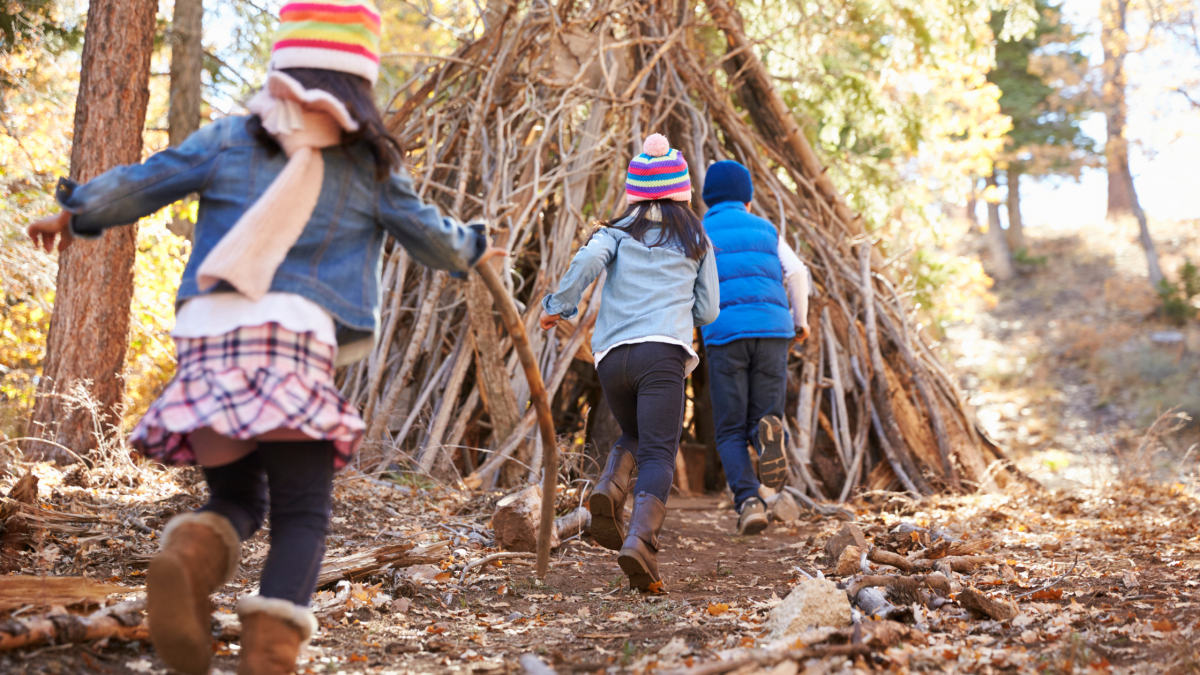
Go on a scavenger hunt walk
Printables are a fantastic activity because they are portable (use a clipboard for writing on the go). Grab these forest school scavenger hunt sheets and the whole family can have an afternoon of fun outdoors.
Make a mud kitchen

FAQs about the forest school outdoor classroom
Do outdoor schools operate in bad weather or when it's cold?
Absolutely!
It's common practice in Scandinavian countries to put toddlers outside to nap when it's freezing (properly attired, of course). And while you may want to stay indoors when it's pouring, it's actually beneficial for children to play outside when it's cold and wet.
What age is forest school for?
Most forest schools offer preschool and pre-k, though there are some that extend to kindergarten and beyond.
Can attending a forest school improve academic performance?
The Office for Standards in Education, Children's Services and Skills (Ofstead) in England completed a large study on learning outside the classroom. It found that, "Such hands-on activities led to improved outcomes for pupils and students, including better achievement, standards, motivation, personal development and behaviour. The survey also found examples of the positive effects of learning outside the classroom on young people who were hard to motivate."
How many forest schools are there in the United States?
It's hard to say exactly how many nature-based programs there are in the U.S., but it's estimated that there are close to 600.
Paper Pinecone is the #1 most trusted childcare directory giving parents access to the best preschools and best daycares near you. Parents always search free and childcare providers always list free. Send inquiries about the best daycares and preschools to [email protected].
This post may contain affiliate links.
By Crystal Teegarden
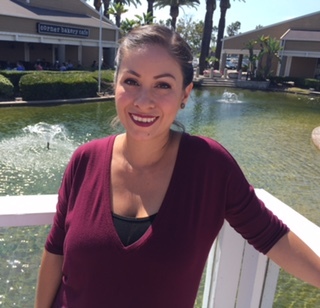
Crystal is a gentle parenting mama who loves reading, cooking, and exploring new trails with her husband and son. She is from Los Angeles but currently lives in Portland, OR where she is eating all the vegan food.
- abhishek_2835's blog
- Log in or register to post comments
